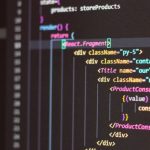Chinese organisations are leveraging cloud services from Amazon and its competitors to access advanced US AI chips and capabilities that are otherwise off-limits. This practice, revealed by a recent Reuters investigation, draws on public tender documents to show the extent of these efforts. The investigation uncovers a significant reliance on cloud platforms to bypass export restrictions and obtain cutting-edge AI technologies.
Reports from prior years have also indicated an ongoing attempt by Chinese entities to circumvent export controls through various means. In recent times, the focus has increasingly shifted towards using cloud services to access these technologies, reflecting changes in both technology and regulatory landscapes. This method of gaining access through intermediaries instead of direct purchases marks a new phase in this ongoing issue.
Amazon’s Role and Legal Compliance
Reuters’ findings indicate that at least 11 Chinese organisations have sought restricted US technologies or cloud services, with Amazon Web Services (AWS) being a frequently named provider. These services are accessed through intermediaries, as direct acquisition from AWS would violate US trade laws. AWS maintains its stance:
“AWS complies with all applicable US laws, including trade laws, regarding the provision of AWS services inside and outside of China,”
according to an AWS spokesperson.
Specific Cases and Concerns
One notable case involves Shenzhen University, which invested 200,000 yuan in an AWS account to access servers using Nvidia A100 and H100 chips via Yunda Technology Ltd Co. Another instance is Zhejiang Lab, which planned to spend 184,000 yuan on AWS services for developing its large language model, GeoGPT. This highlights the growing trend among Chinese institutions to use overseas cloud services to fill gaps in domestic computing power.
Legislative and Regulatory Responses
In light of these findings, US officials express growing concerns about regulatory loopholes. US House Foreign Affairs Committee Chair Michael McCaul remarked,
“This loophole has been a concern of mine for years, and we are long overdue to address it.”
The US Commerce Department is now tightening rules and seeking additional resources to enforce existing controls on remote access to cloud computing capabilities.
Additionally, the Commerce Department has proposed a rule requiring US cloud firms to verify large AI model users and notify authorities of any usage involving these advanced technologies. This measure aims to mitigate the risks associated with this loophole, which has allowed Chinese firms to access technologies with significant implications for national security.
Chinese organisations are also exploring cloud services from other providers like Microsoft. For instance, Sichuan University plans to purchase 40 million Microsoft Azure OpenAI tokens for developing a generative AI platform, demonstrating the widespread interest in leveraging US cloud capabilities.
As these developments unfold, the challenge of regulating access to advanced computing resources becomes increasingly complex. The interconnected nature of the global technological landscape makes it difficult to enforce traditional export controls effectively. This scenario underscores the need for more comprehensive legislation that addresses cloud-based access to restricted technologies.
Ongoing discussions about technology transfer and national security will likely be fueled by these findings. Lawmakers and industry leaders must balance technological cooperation with safeguarding national interests, especially as AI continues to evolve rapidly.










